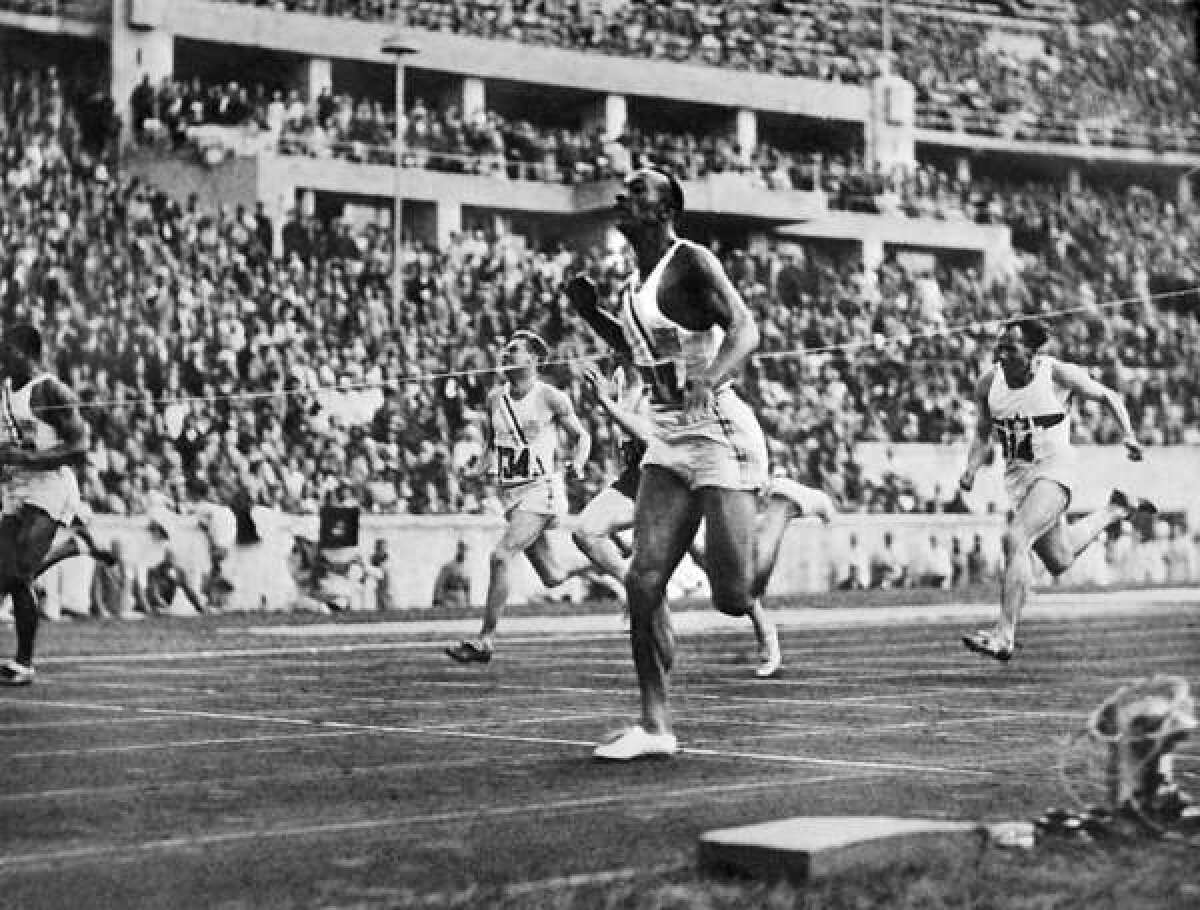What is the greatest sports moment in world history?

- Share via
The world is supposed to end Friday. The Mayans predicted it. We think. Of course, rational people don’t believe for a moment that the world is ending Friday. But what if it does?
If the world ended Friday, the most important thing to figure out would be the following: What is the greatest sports moment in world history?
Reporters from around the Tribune Co. answer that question for you. This post will be updated throughout the day with their thoughts.
Mike Bianchi, Orlando Sentinel
So many choices and so little time.
Is it the birth of Tim Tebow? Is it the advent of the beer-cart girl in golf? Or maybe it’s when my local cable company added the Red Zone Channel.
But, seriously, if it’s the greatest moment in world history, it needs to be an international event like the Olympics. The “Miracle on Ice” is the obvious choice, but I think there’s one Olympic moment that’s even more significant than America’s triumph over the heavily favored Soviets in 1980.
How about 1936 when Adolph Hitler was using the Berlin Olympics to promote Nazi propaganda and Aryan racial dominance? Then Jesse Owens showed up, won four gold medals and showed the most notorious leader in world history what he could do with his perceived “Aryan superiority.”
If you’re talking about world history, it’s hard to beat such a symbolic moment.
Barry Stavro, Los Angeles Times
For a moment, forget his rape conviction and his chomping of Evander Holyfield’s ear. The Mike Tyson who stepped into the ring on Feb. 11, 1990, was one of the great heavyweights of the century: a mix of Dempsey, Louis, Marciano and Ali. When Tyson fought it was even money that you’d finish a beer before he finished off an opponent. In Tokyo his opponent was a 42-1 underdog, James “Buster” Douglas, who’d been knocked out three times. But Douglas’ mother had just died -- and this fight was for her. Douglas’ jab hurt Tyson all night and he breezed through the early rounds. Tyson then floored Douglas, but the former Pillsbury Doughboy stormed back, and in the 10th a five-punch combination put Tyson down. Tyson crawled on the canvas, found his mouthpiece but lost his title.
That night Douglas was great enough to end the greatness we knew as Iron Mike.
Philip Hersh, Chicago Tribune
The 1935 Big Ten Track and Field Championships in Ann Arbor, Mich., may not have been the greatest event in history, but it saw the greatest performance, one that foreshadowed further landmark greatness by its protagonist. On May 25, 1935, Ohio State’s Jesse Owens broke three world records and tied a fourth within 45 minutes. The long jump mark Owens set that day lasted 25 years. He tied the 100-yard dash record and, in addition to the long jump, broke those in the 220-yard dash and the 220-yard and low hurdles. Owens went on to win four gold medals at the 1936 Olympics.
[For the record, 12:32 p.m. Dec. 20: An earlier version of this post credited Jesse Owens with breaking five world records and tying a sixth on May 25, 1935. Owens broke three world records and tied a fourth on that day.]
ALSO:
Roethlisberger apologizes for criticizing Steelers coaches
Tim Tebow is all alone again after breakup with Camilla Belle
Robert Griffin III fined $10,000 by NFL for wearing the wrong shirt
More to Read
Go beyond the scoreboard
Get the latest on L.A.'s teams in the daily Sports Report newsletter.
You may occasionally receive promotional content from the Los Angeles Times.











